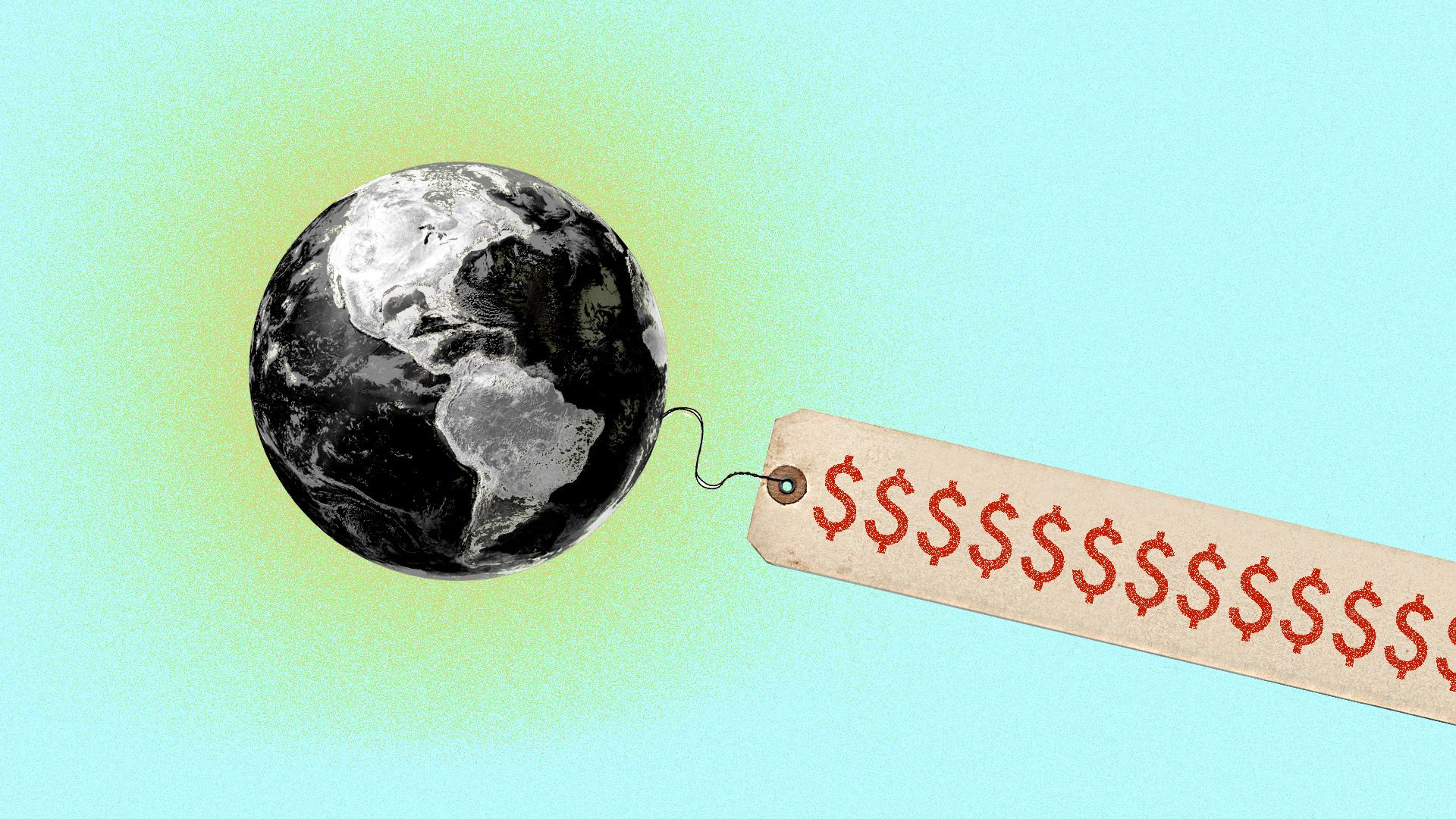
There's $500 trillion of wealth on planet Earth, give or take: Maybe $230 trillion in land and property, $200 trillion in debt and $70 trillion in equity.
The big picture: All of that wealth comes, ultimately, from the planet, and the climate. Specifically, it has come from a stable climate. William Nordhaus points out in his 2013 book "The Climate Casino" that “the last 7,000 years have been the most stable climatic period in more than 100,000 years.” The last 7,000 years have also seen the rise of civilization and the creation of that $500 trillion in wealth. This is not a coincidence.
Nordhaus won the Nobel Prize this week, in an announcement that coincided with the release of a hugely important UN Intergovernmental Panel on Climate Change report on what will happen to the world when it gets 1.5°C, or 2.7°F, warmer than preindustrial levels.
The report puts the cost of a 1.5°C increase at $54 trillion, in today's money.
- You think $54 trillion is a lot? That number comes from research that also says that a 2.0°C increase will cause $69 trillion of damage, and a 3.7°C increase will cause a stunning $551 trillion in damage.
- $551 trillion is more than all the wealth currently existing in the world, which gives an indication of just how much richer humanity could become if we don't first destroy our planet.
We'll be environmentally richer, too. While it's hard to put a dollar value on that, the value of environmental benefits has been rising steadily over time and will continue to do so. Already, we regret environmental destruction in the past and would happily give up a small fraction of our current wealth to undo it.
Where things stand: Human civilization has reached the very end of reaping the dividends from a stable climate. Compared to recent decades, the world in 2100 will have a 13% reduction in crop yields (and those crops will also be less nutritious); it will also have 2.8 billion more people at risk from drought in any given month.
Preventing extreme global warming will be neither cheap nor easy. Just for starters, we will need to spend about $2.4 trillion per year on energy investment between now and 2035, overwhelmingly targeted at renewables.
Where things stand: Human civilization has reached the very end of reaping the dividends from a stable climate. Compared to recent decades, the world in 2100 will have a 13% reduction in crop yields (and those crops will also be less nutritious); it will also have 2.8 billion more people at risk from drought in any given month.
Preventing extreme global warming will be neither cheap nor easy. Just for starters, we will need to spend about $2.4 trillion per year on energy investment between now and 2035, overwhelmingly targeted at renewables.
- Looking forward to 2050, the required average annual investment rises to $3.5 trillion, including massive new investment in electricity transmission, distribution and storage.
- That's more than double our current energy investment, most of which is still focused on fossil fuels.
- Such investment pays noncash dividends. Improved air quality on the 1.5°C pathway, for instance, would lead to more than 100 million avoided premature deaths over the 21st century, over and above the number of lives saved by keeping global warming to 2°C, according to the IPCC report.
The bottom line: Both Nordhaus and the IPCC report make clear that we will have to tax carbon. That incentivizes investment in alternatives, while deliberately making our current carbon-heavy lives less sustainable.
- It's hard to get to 1.5°C with a carbon tax alone. The lowest figure for doing that in the IPCC report is $135 per ton in 2030, rising to $690 in 2100; the highest estimate is $5,500 per ton in 2030 and $27,000 per ton in 2100.
- More realistically, a carbon tax of about $25 per ton in 2030 could be combined with tough regulation of energy usage and efficiency, including a ban on new coal-fired power plants.
Go deeper:
- Where climate change will hit the U.S. hardest.
- Meeting Paris climate goals could save the world trillions of dollars.
No comments:
Post a Comment